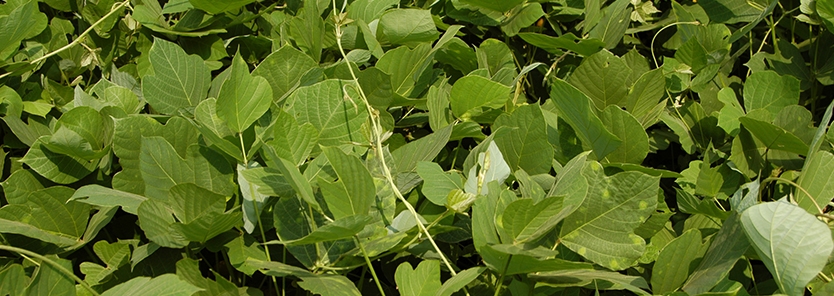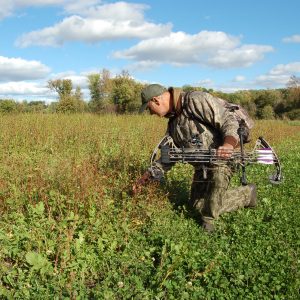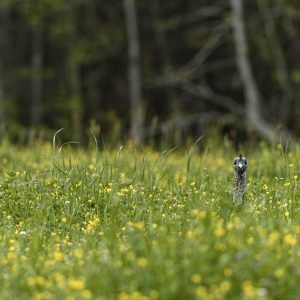How to get Rid of Kudzu
With Kudzu being one of the most prolific plants to ever join the list of invasive plants in our country, learing how to get rid of kudzu is important for Gamekeepers. A native of Asia, the perennial legume spreads by both seeds as well as runners. Kudzu infestations harm timber and native plants and can decrease property values. Kudzu patches are normally a monoculture since the vines choke out other plants. Though deer will browse kudzu, the monoculture is not the diverse menu most wildlife prefers. Vines can grow 12 inches a day and vines “peg” down like peanut vines. These pegs establish another root which is like a tuber underground, storing energy for the plant.
This plant LOVES sunlight and will always grow towards the most open area it can. A small colony or “patch” of kudzu can remain small and seem harmless for years in a shaded area until a timber harvest or thinning has occurred. Then it explodes and flourishes when the new found sunlight is suddenly available. In just 1 growing season a small patch of a few square yards can grow to a ¾ acre area, growing over and entangling all native vegetation to the point of choking it from normal growth. Left unchecked the area can quickly be several acres in a few summers.
There are several options for control, none of which are an overnight success and eradication is not going to possible without some patience and persistence.
Define Your Goal
The main concept should be for property owners and managers to think through the situation before spending any money or beginning. Ask yourself, “What is my goal?” Is it merely to keep the plant at bay or from crossing onto your land from another’s property? Or is the goal complete and permanent eradication? Once a goal has been determined put a plan in place and then move forward with the steps that will achieve the goal. Most importantly, stay the course. If eradication is the goal don’t stop inspecting the area just because you “think you got it all.” Persistence is the key.
Mowing Kudzu
For property managers that are fighting a land line encroachment of the pesky vines mowing is an option if the terrain is safely accessible with a rotary mower. Lines will need to be mowed on an “as needed” basis and in states with long, warm, rain-filled growing seasons this could be 10-12 mowing cycles a growing season.
Using Livestock to get rid of Kudzu
If the patch of kudzu is located inside a property one can over graze it with livestock like goats or cattle until the tubers are completely exhausted of their stored energy so no more sprouts emerge. This can take many years and the cost of establishing fencing and water sources for livestock can be a considerable investment.
Using Herbicides to get rid of Kudzu
 |
Herbicides are effective on kudzu. Depending on where the kudzu is growing there are several herbicide options. Two important factors I have learned when using herbicides on foliar applications of Kudzu is use ample water as a carrier for the herbicide – 50 to 100 gallons of water per acre is common and always use a quality surfactant when the herbicide label recommends one. A surfactant decreases the surface tension on a spray droplet making it spread out on a leaf increasing the entry of the herbicide into the stomates or “pores” on a leaf. This gets more of the herbicide into the plant.
“Milestone”, “Trycera”, “Escort XP,” and even “Roundup-Pro Concentrate” are options for spraying kudzu depending on where the kudzu is growing. Some herbicides provide both residual and foliar control while others just provide foliar control. Roundup is an example of a chemistry that only provides foliar control; therefore it is often the product of choice when spraying in an area where soil-active chemistry is not an option. Should the kudzu patch be in loblolly pines, “Escort XP” can be applied and will not harm the pines. These mentioned products are not restricted use and are labeled for use in most states. As with ANY herbicide application always read and follow label instructions.
For more information on herbicides contact Greg J. Wall, Helena Industrial & Aquatics – 662-312-0510.
~
For more from GameKeeper Farming For Wildlife, join our weekly newsletter or subscribe to GameKeepers Magazine. Your source for information, equipment, know-how, deals and discounts to help you get the most from every hard-earned moment in the field.






